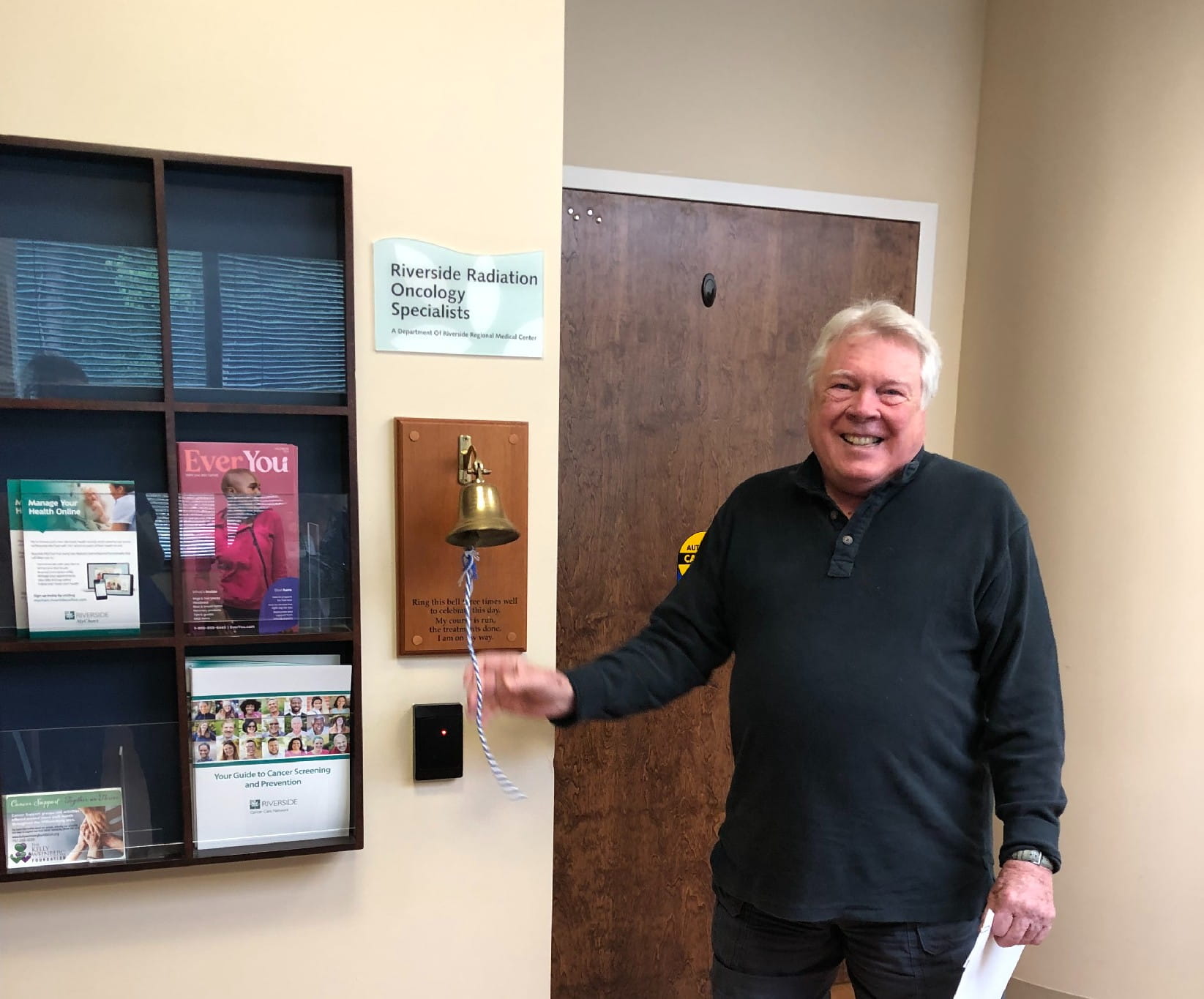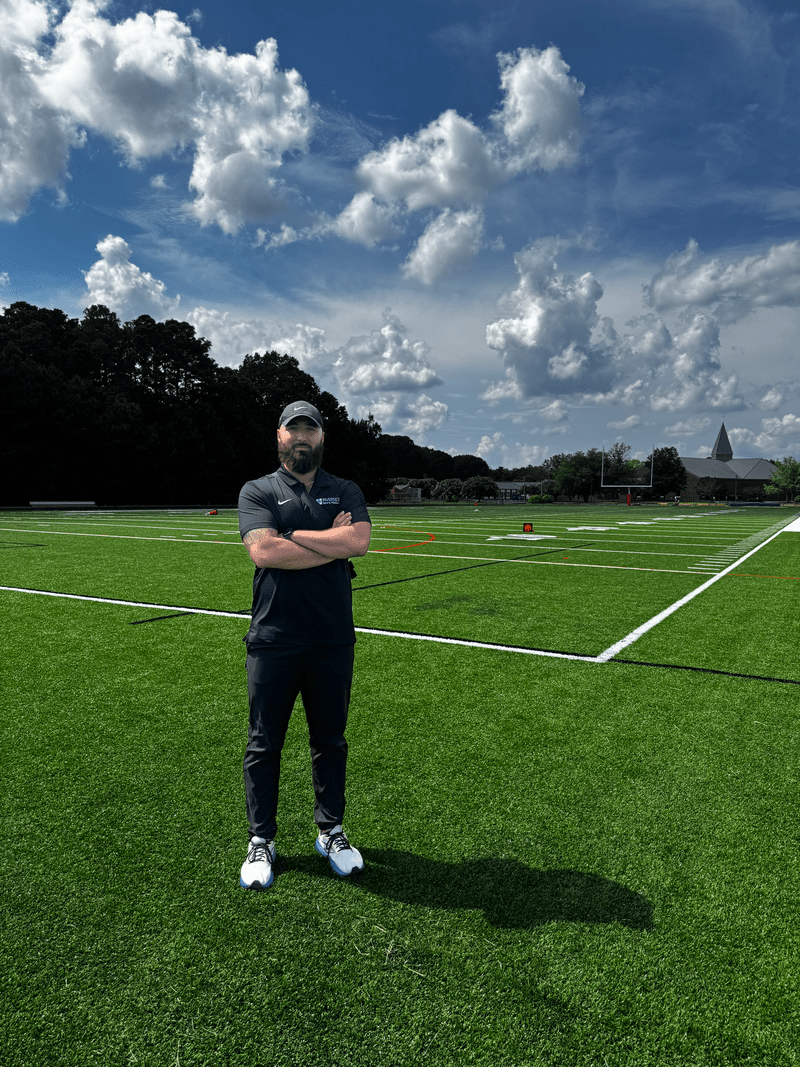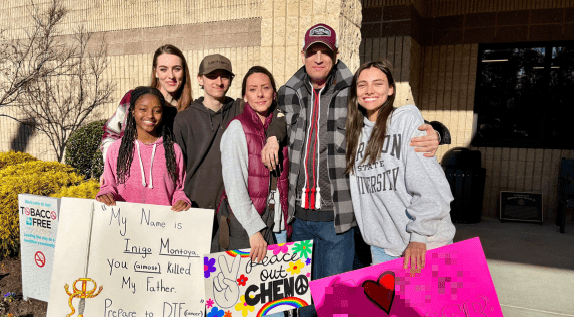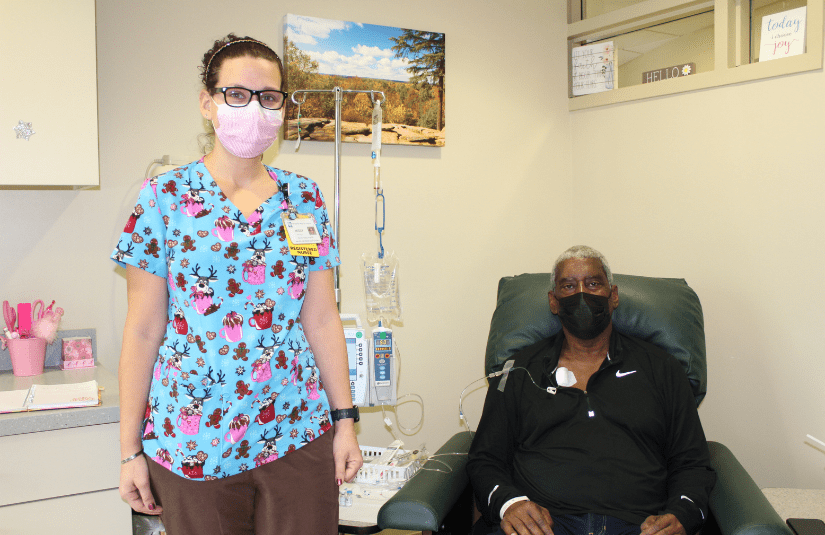Routine lab work may seem just that, routine. Yet it has the power to protect lives, as Williamsburg resident Joe Burke recently discovered.
Because Joe had been faithfully keeping up with regular visits to his primary care physician, along with semi-annual blood tests for more than a decade, his doctor was easily able to detect a rise in his prostate-specific antigen (PSA) level in early 2024. With no symptoms and no family history of prostate cancer, this was the only sign that something was wrong.
When a repeat PSA test showed an additional increase, Joe was referred to his urologist, who ordered a follow-up test to measure changes over three months. In that time, his PSA level more than doubled. Shortly after, a prostate biopsy revealed that Joe had an aggressive type of prostate cancer, and additional testing showed that it had spread to his bones in two places.
“Hearing this news felt like a bomb going off. Do you run left, right, honker down? What are you supposed to do?” Joe says.
Joe and his wife, Iris, understandably concerned, were ready to confront this disease head on as soon as possible. Joe immediately opted to receive hormone therapy, or androgen deprivation therapy, a treatment for prostate cancer that works by reducing or blocking male hormones, primarily testosterone, that cause prostate cancer to grow. After receiving this treatment from his urologist, Joe was encouraged to seek radiation therapy next. Radiation therapy uses high-energy rays or particles to kill cancer cells and shrink tumors.
They found themselves overwhelmed and frustrated by the lack of knowledge about radiation therapy options and unsure where to seek the treatment that Joe needed. “The problem is that you hear about 20 different cancer places and how they’re all the best,” Joe says.
The Burkes considered treatment centers all over the world, from Phoenix, Arizona, where their daughter lives, to Japan, where a friend suggested wonderful cancer treatment programs. Another friend had been diagnosed and treated for prostate cancer at a well-known facility in Atlanta, so Joe seriously considered that option, yet hesitated when he listened to his friend’s account of receiving 45 radiation treatments over the course of nine weeks, five days a week. “I thought, ‘I can’t go and live somewhere else for that long,’” Joe says.
So, he narrowed his search to Virginia and began calling multiple treatment centers across the state, trying to learn about the differences between them — and between the different types of radiation therapy they offered. “Meanwhile, I’m freaking out because I’m not getting treated. I was scared to death and didn’t like the thought of traveling somewhere for so many treatments.”
In their search, the Burkes looked into possible treatment in Charlottesville with UVA Health. However, after discovering that the program had an affiliation with Riverside Health, which offers advanced cancer treatment locally in Williamsburg and Newport News, their choice ultimately ended up being right around the corner. “I finally decided to go to the place that’s just a few minutes from my house,” Joe says.
At Riverside Radiation Oncology Specialists Williamsburg, Joe and Iris met Radiation Oncologist Dr. Leonid Reshko, who explained that Joe was a candidate for stereotactic body radiation therapy (SBRT), a precise treatment method offered by Riverside that can be accomplished in five treatments or less. “I almost fell off the chair and didn’t believe him at first,” Joe says.
SBRT delivers radiation to the cancer site with submillimeter precision while preserving healthy tissue. This treatment is proven to be equally successful compared to proton radiation, with advantages that include fewer complications, shorter treatment times and men do not require a rectal balloon to be placed for each treatment.
Joe proceeded with the SBRT and was thrilled with his experience at Riverside. “They were so nice, and Dr. Reshko made it sound so simple,” Joe says.
Joe was also impressed with Radiation Oncologist Dr. Ronald Hale, who has also been involved in his care. “He gave me all the intricate details in a way that I could understand,” Joe says. “The whole team was smiling, happy and glad to see me. They could not have been sweeter, and there was no waiting.”
“This has been a long, hard journey, and quite a learning experience,” Iris says. “But the team was very happy to tell us whatever we wanted to know. They were super personable and helpful.”
After completing radiation therapy, Joe is receiving oral chemotherapy as part of his personalized treatment plan. A year and a half after his diagnosis, Joe’s PET scan results came back all clear. “That was the best news we’ve had in a long time,” Iris says. “The treatment I got killed everything,” Joe says, “in five treatments for each cancer site”.
Iris is equally appreciative that her husband was able to receive care at Riverside, so close to home, recognizing the challenge it would have been to travel out of the area for an extended time. “It just meant the world,” she says. “We have a house, a mortgage and a dog who couldn’t go. It was an easy, simple 10-minute drive to Joe’s treatments, and if he wasn’t feeling so good afterwards, he just came home and laid down. That clarified our choice, and here it was right in our own backyard.”
After learning just how important prostate cancer screening is, Joe and Iris both urge other men not to neglect it. “I tell everyone, ‘You’ve got to get that done — it’s just a simple blood test,’” Iris says.
“We want to encourage other people to be screened and know that if they are facing prostate cancer that Riverside offers SBRT right here,” Joe says, “because when you have an aggressive cancer and you don’t know it, it’s like driving down the street blindfolded.” Thankfully, because he and his doctor stayed on top of his health, Joe was able to see clearly what he was facing at the earliest possible time.
In his journey to recovery, Joe feels he was led to the right place for his cancer care. He’s grateful to have found the answers he needed — and he’s grateful that they were closer than he thought. “I was blessed,” Joe says. “Somebody was looking out for me.”



